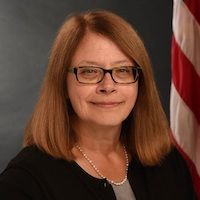Article
SAMHSA Programs Take Aim at Mental Health, Opioid Epidemic
Author(s):
In a presentation for the American Psychiatric Association, Elinore McCance-Katz says helpline calls have dramatically increased since the COVID-19 pandemic.

Elinore McCance-Katz, MD
A recent push for more funding for mental health services is already paying dividends.
In a presentation at the American Psychiatric Association’s (APA) Spring Highlights Meeting 2020, Elinore McCance-Katz, MD, assistant secretary of mental health and substance use at Substance Abuse and Mental Health Services (SAMHSA) highlighted a number of new programs tackling mental health and substance abuse issues.
One of the most important initiatives of SAMHSA is to combat the growing opioid epidemic through a variety of state programs and grant funding opportunities equating to a $500 million annual commitment beginning in 2017 that has since expanded to $1.5 billion per year, the majority of which are earmarked for the hardest hit states.
“One of the things we're able to advocate for is expand use of the funds to ability for state to address stimulant use disorders depending on the severity of the problem in their state,” McCance-Katz said. “Funds will not be used for programs that are not using evidence-based practices.”
These programs may be having an impact as McCance-Katz said recently there has been a sharp decrease in prescription drug and heroin use.
One of the more effective programs was created due to the Synthetics Trafficking and Overdose Prevention (STOP) Act, a 2018 piece of legislation that promotes new research into pain management drugs while expanding access to substance abuse treatment for Medicaid patients.
Also, McCance-Katz is hopeful a new treatment recovery work force support by the Substance Use-Disorder Prevention that Promotes Opioid Recovery and Treatment for Patients and Communities (SUPPORT) Act could also put a major dent in the opioid epidemic as it allows funding to assist people recovering from substance abuse disorders to obtain employment.
McCance-Katz explained that recently the biggest budgetary expansion is seen in mental health services.
This funding increase has stabilized mental health block grants, while implementing a teacher and other school professionals’ program on how to recognize children that may be experiencing mental health issues. SAMHSA also provides funding to established services in the school setting to address mental health issues and to provide direct service delivery within school systems for mental health issues in children.
There was also a large increase in programs that build relationships between law enforcement and mental health providers and communities.
“We have key issues we're addressing, and I think we've done something important to address the issue of incarceration of people with serious mental illness,” she said. “And if this is an unfortunate reality, jails and prisons have become the replacement for state mental hospitals and that we know the majority of people are not going to get care and treatment for it.”
McCance-Katz also said it is important for government agencies to stay on top of current events that may be impacting mental health, such as the coronavirus disease 2019 (COVID-19).
She said in March 2020 there was a 90% increase in calls to their help line when compared the March 2019.
“And so, SAMHSA realizes this is going to be a huge problem and we address from several perspectives, what are public needs and needs of people who are already have substance use disorders and what our organizations means,” she said.
McCance-Katz also said SAMHSA has put out tips for social distancing and isolation during the outbreaks and has established support disaster help lines and suicide prevention lifelines.
A total of 47 individuals in the US meet the criteria for mental disorders, with 24% of these patients having serious mental illnesses. Also, 7.8% of the population, a total of 19 million people, meet the criteria for substance abuse disorder, the majority of which suffer from alcohol use disorders.





